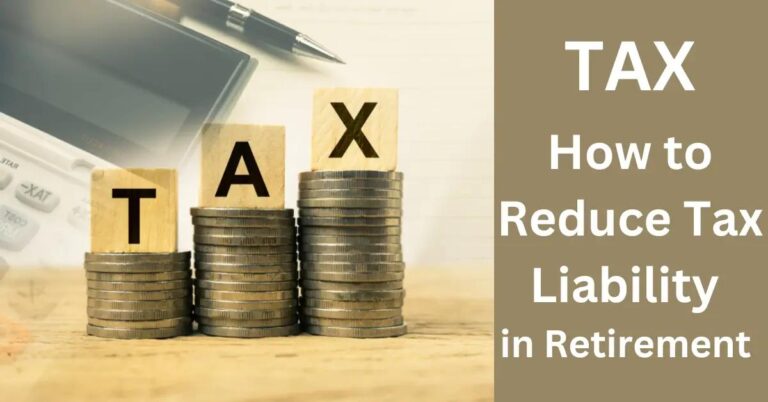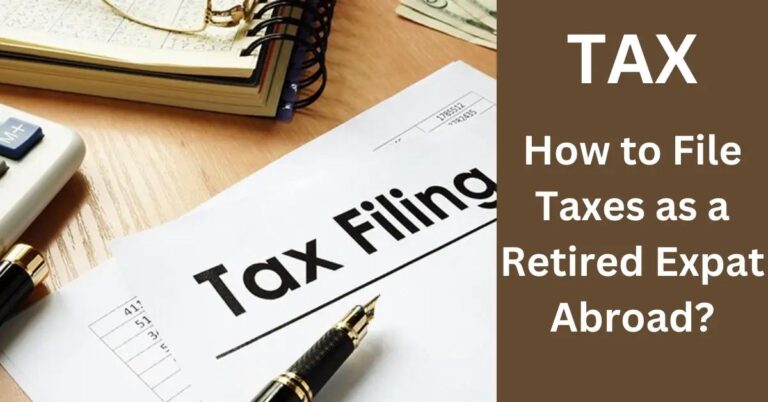TL;DR:
- Retirees must file taxes if income exceeds certain levels, influenced by state residency
- California taxes most retirement income sources heavily.
- Federal tax return deadline is April 15; state deadlines vary.
- Double taxation may apply if retirees have foreign income. Check relevant tax treaties.
- Retirement deductions: housing, medical expenses, and charitable donations can lower taxes.
- Strategies: Use tax-efficient withdrawals from accounts like Roth IRAs.
- Seniors over 65 receive higher standard deductions.
- Adjust income sources to fit tax brackets and maximize income.
- Property sales involve capital gains tax; inheritance may involve estate tax.
- Changing tax laws necessitate proactive financial review and adaptation.
Navigating taxes can feel like a maze, especially when retirees return home. Understanding taxes is crucial as you transition back, impacting everything from your pension to state incentives. Do you know which income sources are taxed back home? Or, do seniors like you need federal returns after 70? Let’s unravel these tax questions and explore smart strategies to maximize your retirement income. Dive in and simplify your tax journey home.
Tax Implications for Retirees Moving Back Home
When returning home as a retiree, taxes can be confusing. Do seniors over 70 need to file taxes each year? In most cases, yes, depending on income and where you live. Understanding your tax residency is key. It affects what you report and taxes owed. This is crucial for finance planning.
Next, identify which income sources are taxable. Pensions, social security, and any work income may be taxed. Each has different rules. Pension taxation rules depend on state and federal laws. Knowing the details helps avoid mistakes.
So, how about retirees in California? California taxes more income than other states. Most pensions, social security, and dividends get taxed too. Retirees often face high taxes there. It’s important to plan and understand rules.
What about tax filing deadlines? A safe bet is April 15 each year. That’s the deadline for federal returns. But, states can vary. You’ll need documents like your W-2, 1099 forms, and social security statements. Staying organized can make filing easier.
Considerations expand if you moved abroad and are now returning. Did you know you could face double taxation? To avoid it, check tax treaties your home country has with others. Each treaty helps prevent being taxed twice on the same income.
Returning seniors may also qualify for special deductions or credits. These offset some tax burdens. Housing or medical expenses can reduce taxable income for seniors. These deductions help make returns less painful.
Retirement tax planning doesn’t have to be scary. Knowing rules and timelines helps a lot. There are resources and advisors who offer great help. Understanding tax implications means you’re on top of things, dodging surprises. Planning ahead simplifies your fiscal life, keeping it stress-free.
How is Retirement Income Taxed?
When you retire and return home, you must think about retirement income taxes. Do I have to pay taxes on retirement income? Yes, most retirement income is taxable. Retirement income comes from many sources like pensions, social security, and savings.
Overview of Taxable Retirement Income
You must know what parts of your income are taxed. Each type has its own rules. Sometimes, taxes depend on your income level. Other times, the source of income matters more. Planning for taxes on this income is important to avoid surprises.
Special Rules for Social Security Taxation
Does a 70-year-old have to pay taxes on Social Security? You might have to pay taxes if you have other incomes. This can include pensions or savings withdrawals. If your income is above a certain amount, up to 85% of your Social Security could be taxable. Check the rules in your state, as they can vary.
Pension Income Tax Rules Across Different States
Taxes on pensions differ from state to state. Some states tax pension income heavily, while others may not tax it at all. Check your state’s rules before you move back. If your state taxes pensions, you might need to save a bit more to cover this cost.
Calculating Your Total Taxable Income
To know how much tax you will owe, calculate your total taxable income. Add up amounts from social security, pensions, and any other retirement funds. Use retirement tax planning tools or consult a tax expert. This helps you understand what you will owe and prepare for income tax time.
Retirement tax rules can be complex and change from place to place. Planning and understanding these will ease your mind and help you enjoy your retirement. Learn about retiring and taxes, so you can focus on what matters most: relaxing and enjoying life’s new chapter.
What Tax Benefits Can You Access by Moving Back?
Moving back home as a retiree can be full of surprises, good and bad. Among the good ones are potential tax benefits. But how do you find these benefits and why do they matter?
Understanding the Tax Incentives for Retirees in Your Home State
Every state offers its own tax incentives to attract retirees. Some states may not tax retirement income at all, which can save you money. Check if your state’s policies can reduce your financial load. If you’re unsure, this Retirement Tax Friendliness can help you figure it out.
Analyzing Local Tax Credits and Deductions Available
Besides state-level benefits, local areas often offer additional credits. These may include property tax breaks or reduced utility costs. You might find classes and seminars through local resources that explain how to save more.
The Effect of State Residency on Tax Obligations
Becoming a resident of your home state again involves paperwork. State residency affects your tax duties, so be careful. Some states may want you to pay more taxes the minute you change your address.
Evaluating Cost of Living Adjustments
Returning to your previous home state often comes with cost of living changes. Property costs, groceries, and healthcare can alter your true savings. While tax breaks ease this shift, you must gauge the overall effect on your finances.
Exploring tax incentives in your state is crucial. You can achieve that by using a retirement income calculator. Gain insights on income and how taxes apply to it. Simple tools like these help you make smart money choices.
Returning home should make life smoother, especially with possible tax savings. Checking benefits and planning can help you worry less about taxes. This careful approach ensures you enjoy your retirement and keeps your finances in good health.
How Does Double Taxation Work for Retirees?
Double taxation can be confusing for retirees moving home. It happens when two countries tax the same income. This is a common issue for retirees with income sources from both their home and abroad. So, what is a double taxation agreement? It is a deal between two countries to prevent taxing the same income. These agreements define how to split the taxing rights over certain income types, aiming to reduce the tax burden on individuals.
For retirees, these agreements often cover pensions, dividends, interest, and other income. By understanding these agreements, retirees can avoid being taxed twice on their hard-earned retirement income. How can you benefit from tax treaties? First, identify whether your home country has an agreement with the country you moved from. If so, the agreement can save you money.
Use these treaties to reduce the tax on your pension received from a foreign country. Pension taxation in your home country may be different depending on the treaty terms, so check these carefully. Managing pension income from foreign countries is also crucial. Notify your tax authorities about your pension, and fill out required forms to claim treaty benefits.
Steps to prevent or mitigate double taxation? Start by understanding your country’s tax laws. Determine if your income is subject to tax both at home and abroad. Renegotiate pensions or investment income terms to fit treaty conditions better. Keeping clear records of your income sources is vital. Consider professional advice to guide you through complex tax treaty terms and protect your money.
Ultimately, learning about these agreements will help you enjoy your retirement savings. The more you know, the less you will pay. For more detailed insight into managing international retiree taxes, visit the IRS’s official page on tax treaties.
What are Key Tax Strategies for Maximizing Retirement Income?
One way to keep more money in retirement is using tax-efficient withdrawal strategies. You take funds from accounts in a way that reduces your tax burden. First, withdraw from taxable accounts, leaving tax-deferred accounts to grow longer. This strategy can lower the taxes you owe each year.
Think about using tax-advantaged accounts like Roth IRAs and Traditional IRAs. Roth IRAs let you withdraw money tax-free, provided you follow certain rules. Traditional IRAs let you defer taxes until you withdraw funds. Using both can strike a balance between paying taxes now and paying taxes later.
Balancing income streams is a useful way to reduce taxation. Distribute income between sources like pensions and Social Security wisely. You might reduce your tax rate and increase your after-tax income.
Understand that seeking professional tax help can make a huge difference. Tax laws change, and professionals have updated knowledge. They guide you to decisions that optimize your retirement income by minimizing taxes. A financial advisor or CPA can help navigate complex rules or personalize strategies.
Ten brilliant ways to reduce retirement taxes include careful planning. It involves adjusting investments, timing your withdrawals, and managing tax brackets. You may also consider impact variations in state and federal tax obligations.
Retirees can use retirement income calculators to explore how different strategies affect taxes. These calculators model different scenarios, letting you see potential outcomes and avoid financial surprises.
It’s vital to know about tax-efficient retirement withdrawal strategies. Withdraw funds strategically and stay informed on evolving tax laws to save money.
Are There Any Retirement Age-Specific Tax Rules?
When you return home as a retiree, taxes can surprise you. It is crucial to understand these rules to manage your money wisely. But how much can a retired person earn without paying taxes in 2024? The simple answer: $27,300 if both you and your spouse are over 65 and filing together.
Knowing the IRS rules for pension income is key. If you are getting a pension, part of it might be taxable. The IRS uses “income brackets for retirees” to decide. These brackets tell you how much tax you owe, depending on how much you earn.
You might wonder, at what age do you stop paying taxes on retirement income? There’s no magic age when taxes disappear. But here is the deal: when you are 65 or older, you get some nice benefits. You could claim a higher standard deduction on your taxes.
Sometimes, retirees owe “back taxes” when coming back home. It is important to check if you are up to date, so there are no surprises. Make sure you settle everything so you can enjoy retirement with peace of mind.
The IRS has specific age-related tax regulations for retirees. Once you reach “retirement age” as defined by the IRS—which is 59.5 for some retirement benefits—you can get more tax benefits. This helps reduce your taxable income. But remember, these benefits do not mean no taxes.
Understanding “income thresholds for tax purposes” is also important. If you earn under a certain limit, you pay no taxes. Above that? You pay taxes based on your bracket. This means how much you earn determines how much you pay.
Think about how retiring early or late affects taxes. Retiring early might mean more taxes, as certain penalties may apply for early withdrawals from retirement accounts. Retiring late could lower your tax burden, with continued income and delayed benefits.
So, plan wisely to ensure you keep as much of your money as possible. Managing these age-specific tax rules can maximize your retirement funds, but it’s crucial to stay informed.
What Deductions and Credits Apply to Retirees?
Figuring out tax breaks as a retiree is important. Let’s see what’s available to you.
Common Deductions for Senior Citizens
One of the main deductions for seniors is the higher standard deduction. This can lower your taxable income significantly. If you’re over 65, you qualify for this larger deduction. This is a big help if you don’t itemize deductions. Check each year for changes, as the amounts can vary.
Charitable Donations Tax Deductions
Giving to charity not only feels good, but it can also provide tax benefits. Donations to qualifying charities can be deducted from your taxable income. This means you lower your taxes while helping others. To do this, keep receipts and letters from the groups you support. Only donations to approved organizations count toward deductions.
Dependent and Home Care Credits for Retirees
You might also qualify for credits related to dependent or home care. If you’re responsible for an elder relative or have home care costs, you get tax credits. These credits reduce your tax bill, dollar for dollar. It’s different from deductions, as deductions lower taxable income but not directly the tax owed.
Housing-Related Tax Credits and Deductions
Do you live in senior housing? Then, you might get tax credits or deductions for it. Some regions offer credits to cover a portion of your senior housing costs. These can help with things like rent or property taxes. It’s smart to search for specific programs offered in your state or city. They can change and may have requirements to meet.
How to File Income Tax Return for a Retired Person?
Filing your income tax return as a retiree involves some steps. Make sure to declare all income, including Social Security and pensions. Use the standard deduction if it’s right for you. See if you qualify for the mentioned deductions or credits to lower your tax bill. You may still need to file a return even if your income is low. Always check the latest rules, as they can change year to year.
How Do Property and Other Assets Affect Retirees’ Tax Liability?
When selling a home or an investment, taxes arise from capital gains. Capital gains tax is due on profits from a property’s sale. To calculate, deduct the home’s initial cost and any expenses, like repairs, from the final sale price. Remember, the tax rate differs based on how long you owned the property. Normally, properties held over a year get a lower rate.
Property tax considerations become crucial as well. Every retiree should check local property taxes as rates and relief programs vary. Some states offer property tax relief programs just for retirees. This can ease the burden, but eligibility often depends on age, income, or property value criteria.
Now, if you inherit a house or give a gift, expect tax implications. For inheritances, the size of the estate influences taxes. The federal government imposes an estate tax on large estates, while some states also levy their own taxes. Always check both federal and state rules because thresholds and rates change.
As retirement looms, it’s wise to think about future estate planning. Estates can trigger taxes on heirs when passing along wealth. Planning smart helps reduce taxes your loved ones may face later.
Rising tax rates may worry retirees. When tax rates climb, you’ll pay more on income and property. If your income is drawn from investments, higher rates cut your net income. Planning to sell high-value assets later could lead to increased tax liabilities.
Lastly, understanding your tax obligations keeps you prepared. Remember that changes in laws or rates can significantly affect your finances. Plan carefully and utilize professional help to optimize your financial strategy. It’s essential to stay informed and proactive in managing these aspects, creating a secure retirement path.
How Can Retirees Adapt to Changing Tax Laws?
Keeping up with ever-changing tax laws is vital for retirees. You might wonder why it’s so important. Laws change to match economic shifts and policies. A new tax law could affect your retirement savings or investments. To manage taxes better, stay informed on tax law changes affecting retirees. Know what’s coming or already in place.
How do we handle changing tax laws in retirement? One best practice is regular reviews of your financial situation. This means checking on your investments or savings. Make sure they are still tax-efficient under current laws. Understanding your taxable income in retirement is key. It includes pension, Social Security, or any other earnings. Keep track of changes in rules that define taxable income.
Consider the legal parts of tax planning. Following tax laws helps you avoid audits or penalties. That’s why compliance is crucial. You could consult a tax expert if laws seem complex. Experts can help you plan for new laws. They can also help ensure your retirement funds are in the best tax-efficient formats. Investing time in understanding these elements helps you adapt.
Strategies for adapting to new tax policies include evaluating retirement investments. Also, stay aware of your state’s specific tax rules and benefits. A shift in policy might mean reconsidering income streams. Find which options could save you money. Some states offer credits or deductions. These can positively impact your retirement if you qualify.
Maintaining a proactive approach with planning helps manage future tax changes. Regular check-ins with a financial planner can be advantageous. They provide insights specific to your financial state and future needs. This ensures your plan adapts to new tax realities. Having a well-laid plan helps protect your valuable retirement savings from unexpected changes.
By following these steps, you ensure a financially safe and adaptable retirement. Keep informed, comply legally, and be proactive in handling your taxes. This empowers you as a retiree facing ever-transforming tax laws. Adaptation is key, and with the right steps, it is entirely achievable.
Conclusion
Navigating the tax landscape when moving back home as a retiree is key. Choosing the right tax residency and understanding taxable income sources can significantly affect your return. It’s crucial to meet filing obligations and deadlines, especially for those over 70. Moving home may unlock tax benefits and incentives, along with strategies to avoid double taxation. By planning your retirement taxes wisely and using available deductions, you gain more control over your income. Stay informed about changing laws to keep your plans effective and compliant. Manage your tax liabilities to better enjoy your retirement years.












